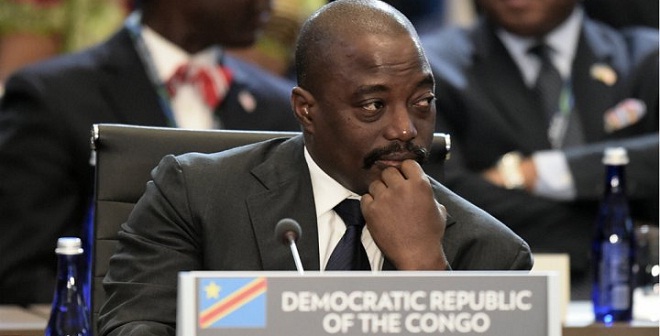
Kinshasa, DR Congo | AFP |
Congolese Prime Minister Augustin Matata resigned Monday to make way for an opposition figure to take his place following a controversial deal that effectively extends the president’s term in office.
The decision to delay presidential polls until at least late 2017 was part of a deal agreed in October by the government and fringe opposition groups that has been boycotted as a sham by the mainstream opposition.
The deal, which followed a “national dialogue”, was aimed at calming soaring political tensions.
“I have offered my resignation as well as those of the members of my government… to respond to the spirit and the letter of the accord,” said Matata as he left a meeting with President Joseph Kabila.
The opposition has accused Kabila, who has been in office since 2001, of manipulating the electoral system to stay in power after his second term ends on December 20.
Kabila will address the situation on Tuesday when he speaks to parliament to discuss “the state of the nation”, according to a statement read on state media.
Vital Kamerhe, who led the fringe opposition bloc that participated in the national dialogue, is the favourite to succeed Matata as prime minister.
Following a meeting with Kabila, Kamerhe said that the nomination of a new premier was “imminent” and the formation of a new opposition-led government would be complete within a week.
‘Get on board’
He added that the opposition groups which boycotted the “national dialogue” could still “get on board at any moment. We are still open”.
The main dissident coalition Rassemblement (Gathering) — which has rallied around veteran opposition leader Etienne Tshisekedi — has rejected the deal that followed the “national dialogue” and stepped up its calls for Kabila to leave office by December 19 when his term ends.
Tshisekedi’s UPDS party said the resignation was meaningless.
“The UDPS notes the resignation of Mr Matata,” said spokesman Augustin Kabuya, adding that it “will however not resolve the crisis.
“The Congolese people don’t want a new prime minister to be named but that Mr Kabila quits power” next month, he said.
The country has been in a state of crisis since disputed elections in 2011 returned Kabila to office for a second term.
A 2006 constitutional provision limits the presidency to two terms.
Violent anti-Kabila protests on September 19 and 20 triggered by the political instability claimed 53 lives, according to the UN.
A UN Security Council delegation in the country has called for a peaceful transition of power following the government’s decision to delay elections.
Kabila took power in 2001, 10 days after the assassination of his father, the then-president, Laurent Kabila.
Joseph Kabila was first elected to a five-year term as president in 2006. He then won a hotly-disputed election against Tshisekedi in 2011.
 The Independent Uganda: You get the Truth we Pay the Price
The Independent Uganda: You get the Truth we Pay the Price



